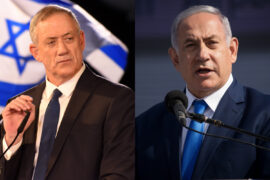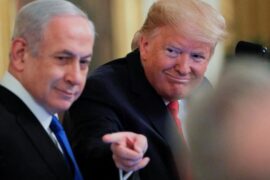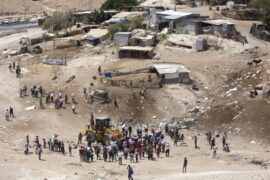In an unusually timed statement late on Sunday, White House Press Secretary Stephanie Grisham announced that United States forces in northeast Syria will move aside and clear the way as an expected Turkish attack on Kurdish fighters looms.
The announcement, which essentially abandons Kurdish guerrillas who had for years fought alongside US troops in the battle to defeat ISIS, came as the Turkish military was dispatching units and equipment to its border with northeastern Syria and one day after Turkish President Recep Tayyip Erdoğan issued a foreboding warning of a military assault across the border.
“We have given all kinds of warning regarding the (area) east of the Euphrates to the relevant parties. We have acted with enough patience,” Erdoğan said.
While Erdoğan claims that Turkey’s objective is to combat Kurdish fighters in the border area in order to establish a “safe zone” for Syrian refugees currently living in Turkey, he has for months been threatening to cross the border and launch an attack on Kurdish forces.
Turkey considers the Kurdish People’s Protection Unit (YPG), which leads the multi-ethnic Syrian Democratic Forces (SDF), to be an extension of the Kurdistan Workers’ Party (PKK) that has waged a struggle for freedom against Turkish rule over parts of Kurdistan for 35 years.
US Press Secretary Grisham was silent on the fate of the Kurds but said that US forces “will not support or be involved in the operation” and “will no longer be in the immediate area,” in northern Syria. According to the administration, the announcement of the American withdrawal followed a call between US President Donald Trump and Erdoğan.
US lawmakers from both parties have warned that allowing the Turkish military across the border could lead to a massacre of the Kurds, sending a troubling message to American allies around the world.
Since January, US officials have reportedly been attempting to broker the establishment of a “safe zone” in northern Syria to provide a security buffer between Turkish and Kurdish forces, but Turkey has repeatedly objected to its implementation
The SDF has meanwhile made clear its intention to respond forcefully to any Turkish incursion.
“We will not hesitate to turn any unprovoked attack by Turkey into an all-out war on the entire border to DEFEND ourselves and our people,” SDF spokesman Mustafa Bali tweeted on Saturday.
One of Trump’s key 2016 campaign pledges was ending US entanglements overseas. But his goal of swift withdrawals from Afghanistan, Syria and Iraq have been stalled by concerns from US officials and American allies about the perilous voids that would remain. As he faces an impeachment inquiry, the US president seems to have grown more focused on trying to make good on his campaign commitments, even at the risk of sending a troubling signal to Washington’s allies abroad.
But that is actually the message we should take away from all this. Like any imperial power, the United States doesn’t have actual “allies” but only interests.
The Kurds were used by Washington so long as they were useful to Washington’s regional agenda. But the US consistently avoided empowering the Kurds to become an independent regional player on their own with the ability to defend themselves without American assistance. The “pro-Kurdish” voices in Washington, much like the “pro-Israel” voices in Washington, support the US protecting Kurds but not empowering Kurds to attain the independence to protect themselves.
Those who believed that allying with the forces of empire would materially advance Kurdish liberation should by now understand how sadly mistaken they were.





